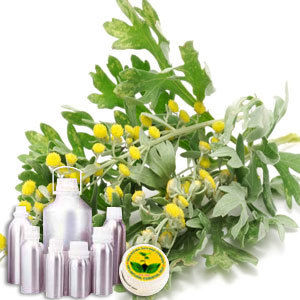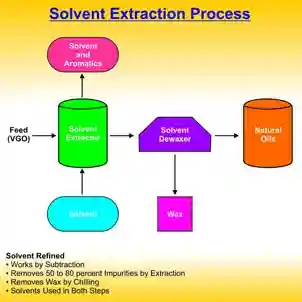Botonical Name | : | Artmesia absinthium | |
CAS # | : | 8008-93-3 | |
Country of Origin | : | Southern Europe | |
Color & Odor | : | Dark Green liquid with Aromatic earthy odor | |
Solubility | : | Insoluble in water, soluble in alcohol and oils | |
Specific Gravity | : | 0.900 - 0.955 @ 20°C | |
Optical Rotation | : | N/A | |
Refractive Index | : | 1.4720 - 1.4900 @ 20°C | |
Flash Point | : | >100°C | |
Major Constituents | : | Alpha-thujone, Beta-pinene | |
Plant Part Used | : | Leaves and Twigs | |
Extraction Method | : | Steam Distillation |
DESCRIPTION:
Wormwood Oil has attained popularity in medicine manufacturing units for its powerful therapeutic properties. Known for its pure content, this high density oil has characteristic smell of wormwood plant. CONSTITUENTS:
a-thujone, Beta-pinene, sabinene, Bite chamazulene , nuciferol propionate, nuciferolbutanoate, b-thujone, geranyl propionate, linalyl acetate, myrcene, sabinene, trans-sabinol and trans- sabinyl acetate. AROMATIC SUMMARY / NOTE / STRENGTH OF AROMA:
Middle note smell of this oil has mild and soothing fragrance. BLENDS WITH:
Wormwood Essential Oil can be blended with oak moss, jasmine, orange and lavender oils. COMMON NAMES:
This oil is popularly referred as Wormwood Essential Oil. USES:
Wormwood Oil of wormwood plant is required to formulate medicines for treating gastric pain, low appetite level, digestive disorders, fevers, flatulence, anemia, dysentery, burns and asthma. This oil has stimulating effects on gallbladder and liver. Moreover, it is an effective remedy for jaundice. 


































